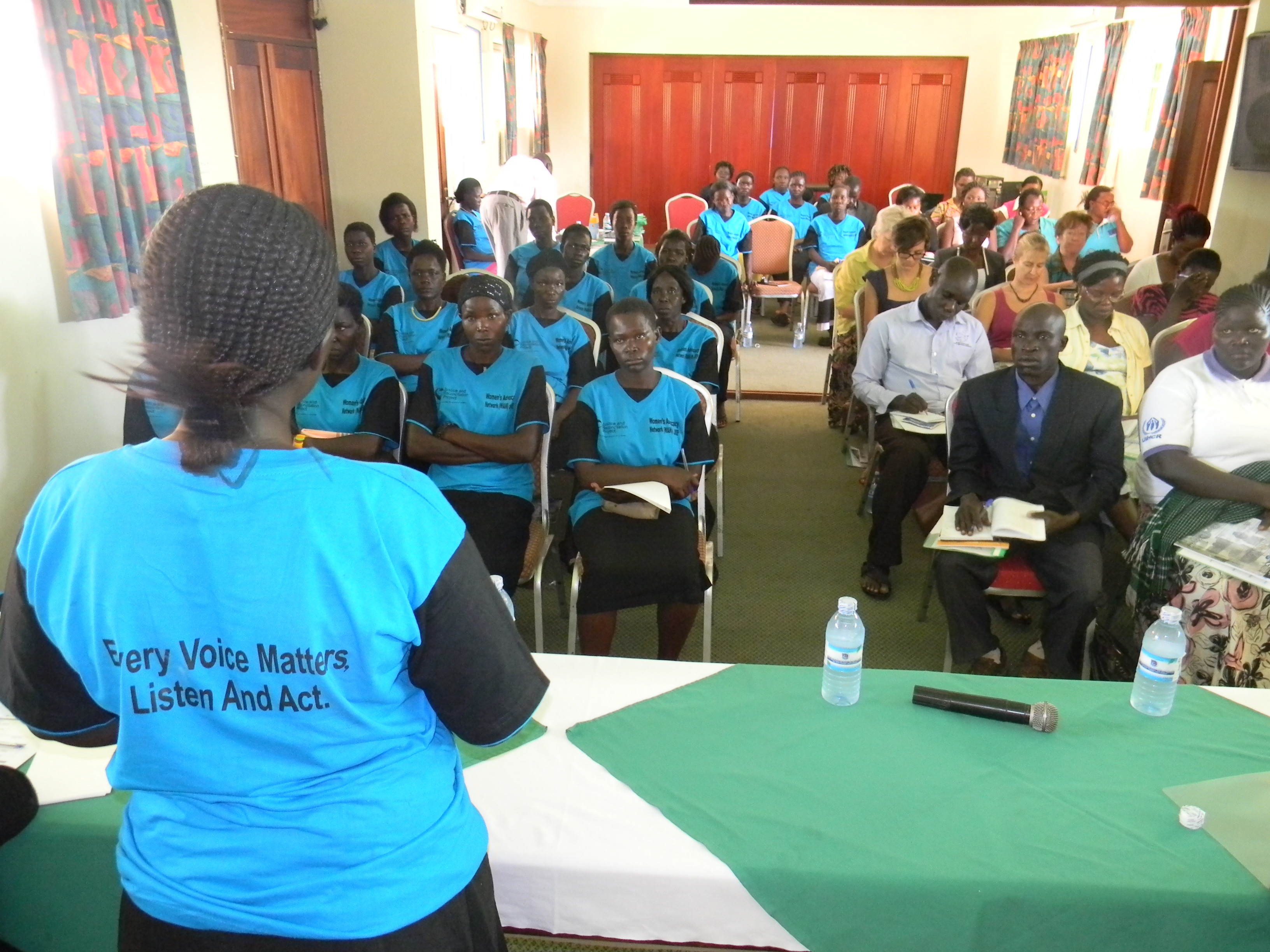It has been six years since the Juba peace talks when the government of Uganda undertook to establish measures that would ensure justice for victims of atrocities committed during the 20 year insurgency in northern Uganda. To date very little has been done to redress the harm that victims suffered.

9 April 2014, however, marks a special and historic day for the war-affected in northern Uganda. The Parliament of Uganda on this day unanimously adopted a resolution calling for a series of measures that will support victims and communities affected by the conflict. This landmark Parliamentary resolution marks the beginning of healing and the restoration of dignity for many victims and survivors who have waited years for steps to be taken to address their needs.
The resolution comes as a result of a motion that was tabled in Parliament by Aswa County, Gulu District Member of Parliament, Hon, Ronald Reagan Okumu on 3 April 2014, urging Parliament to intervene and address issues affecting persons, particularly women and girls, who were affected by the war. This motion was partly influenced by a petition presented to Uganda Women Parliamentarians Association (UWOPA) and the Acholi Parliamentary Group by the Women’s Advocacy Network. The petition was backed and overwhelmingly supported by the Gulu District Local Government
The resolution calls on the Government of Uganda to do the following among others:
- Establish a gender sensitive reparations fund and offer reparations to women and men that were affected by LRA rebellion. Government should provide priority in livelihood, healthcare, skills training and education for women/children victims of LRA conflict in order for these people to live in dignity;
- Increase the budgetary provision for free health services (health insurance) especially on sexual and reproductive health (such as fistula, HIV/AIDS, gynaecological problems), orthopaedic support, psychosocial support as well as ensuring that such services are easily accessible to women and children who were affected by the insurgency;
- Put in place a mechanism with regional governments in LRA affected areas to identify, integrate and regularize stateless children born in captivity, Government should therefore recognize the special unique needs of the children born in captivity whose fathers and patrilineal heritage is unknown and have a review of the laws that require information and documentation on paternity to be amended as well;
- Identify, integrate and resettle child victims of formerly abducted women whose clans, social, tribal and cultural belongings are unknown.
The Deputy Speaker of Parliament has appointed a three member committee consisting of Hon Rosemary Nyakingogoro, Hon Reagan Okumu and Hon Godfrey Kiwanda to follow up on government’s implementation of the resolution and update parliament accordingly.
This resolution is a success for the hundreds of war-affected women and children that have languished since the cessation of hostility in 2006. The adoption of this resolution is an important step in the transitional justice process in northern Uganda because it provides acknowledgment of the needs of the voices of victims of conflict. It also provides an opportunity for the government to provide solutions that address the challenges that vulnerable groups in the region face, many of whose special needs have not been adequately dealt with in the past.
The Justice and Reconciliation Project, therefore, urges the government to expeditiously implement the resolutions made by Parliament.




